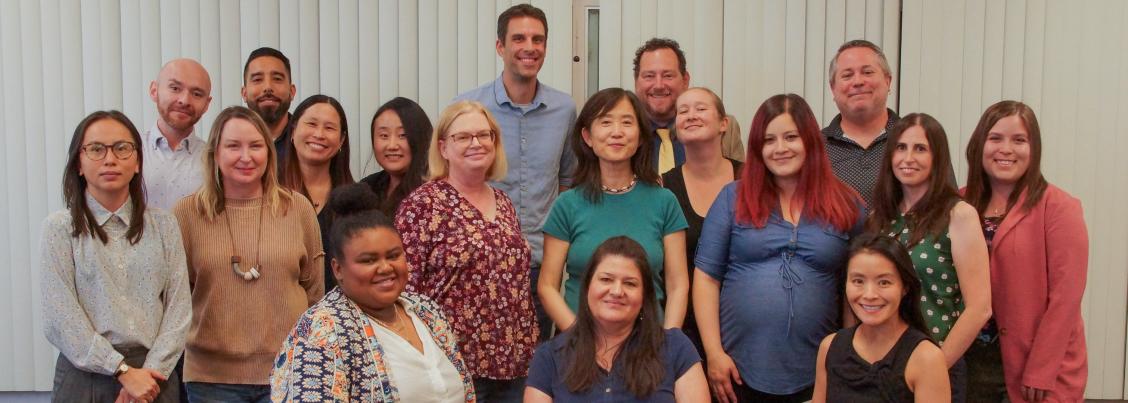Presenting papers and/or posters at regional and national conventions has become a "rite of passage" in our discipline. Convention presentations have become a virtual requirement for anyone who wants to attend graduate school. Unfortunately, these presentations can be quite anxiety arousing, especially for students at their first couple of conventions. Contrary to popular belief, no student has ever fallen through the floor, had a heart attack, or been knocked unconscious by a microphone . . . [read the entire article (humorous) "And in Conclusion: Tips for Presenting Posters and Papers", Spring 1997 issue of Eye on Psi Chi(Vol. 1, No. 3, pp. 60-61).]
Helpful Books & Articles
APA Book: Displaying Your Findings: A Practical Guide for Creating Figures, Posters, and Presentations is a comprehensive and accessible resource for creating effective visual materials.The authors clarify APA style for visual presentation and to emphasize the "how to" aspects of presenting research findings.
Tips for Paper/Poster Presentations and Sample Poster Layouts - Psi Chi, the national honor society in psychology, provides these useful tips for presenting papers or posters at conferences, including sample poster layouts.
So You Wanna Deliver an Effective Speech? - good tutorial on giving oral presentations from soyouwanna.com.Giving Presentations: A Guide for Social Psychology Students - In a few places this guide is specific to Tom Farsides' course, but overall it is a good, general set of advice for students.
Public Speaking: Conquer your Anxiety -
Most people, even graduate students, dread speaking in public. As a graduate student or professor, you can't avoid public speaking. So how do you deal with your nervousness? Follow these tips from Speak with Confidence: Powerful Presentations that Inform, Inspire, and Persuade and you'll approach your next speaking engagement at ease.
Accept your Nervousness.
Most people feel stage fright or anxiety about speaking in public. Accept it as part of the territory. You'll probably first feel the tension the moment you accept the invitation to speak or learn about the upcoming presentation -- and the anxiety will build as the event nears.
Understand your fear.
What do speakers fear? That the presentation won't be what the audience expects or wants. Speakers worry they'll be attacked and asked questions that can't be answered. Everyone will find out that they're just faking it all and don't really know what they're talking about. Speakers fear embarrassment. Sure, there are many things to fear, but try to remember the big picture. Ask yourself, "What's the worst that can happen?" If you slip up, will it really matter a year from now?
Some anxiety is helpful.
Fear can give you the adrenaline rush that you need to be an energizing speaker. There's a substantial body of psychological research that shows that while tremendous anxiety is paralyzing, some anxiety is helpful. It juices you up and provides a surge of energy that is expressed to your audience. Overconfident speakers, those who don't feel anxiety, often are too relaxed to do a good job and give a compelling presentation. Your anxiety can be a powerful ally - use it to invigorate your presentation.
Keep it to yourself.
Never tell your audience about your nervousness. Anxiety typically doesn't show. Don't call attention to your nervousness or your audience will suddenly notice your shaking hands more so than your message -- and thus your message will fall on deaf ears.
Locate your fans.
It's easy to be cowed by a negative nellie in the audience. Remember that you will never be able to please everyone and you may see a sour puss in the audience. Be prepared for that -- and find your fans. Focus on the faces that are interested, listening. They smile, make eye contact, and give you energy. Don't allow yourself to focus on the negative audience members. This is easier said than done, of course as we naturally want to convince our detractors, but often you won't be able to change their minds and you'll just make your own nervousness worse. Focus on the friendly faces in the audience instead. Use positive self talk. We learn to be fearful; we can also learn to be confident. Remind yourself that you know your stuff. Visualize yourself succeeding and be your own cheerleader.
Taken from Dianna Booher's new book, Speak with Confidence: Powerful Presentations that Inform, Inspire, and Persuade (McGraw Hill).




